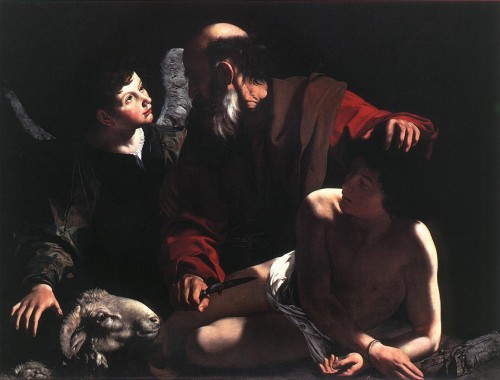
 Who knew? For what can be seen as a dark and and foreboding picture of the all-too-fearsome power of the magnifying glass-wrath-and-anthill God, the God of the Old Testament kings and prophets, instead becomes a powerful indication of God’s favor for working things out in the upside-down world of the cross. Old Testament mysteries, talking asses and the grace of God! This morning’s devotion comes from Ben Phillips.
Who knew? For what can be seen as a dark and and foreboding picture of the all-too-fearsome power of the magnifying glass-wrath-and-anthill God, the God of the Old Testament kings and prophets, instead becomes a powerful indication of God’s favor for working things out in the upside-down world of the cross. Old Testament mysteries, talking asses and the grace of God! This morning’s devotion comes from Ben Phillips.
Behold I have come out to oppose you because your way is perverse before me (v. 32b).
In college I played on an intramural co-ed flag football team. One of the suggestions floated for a funny team name was “Balaam’s Asses” referring to this passage in Numbers with Balaam and his donkey on their way from Moab.
However much mileage we out of talking donkeys these days, this passage in Numbers is quite heavy. Balaam is a soothsayer (think palm reader) who charged people for his skills in divination. The King of Moab tries to hire him to curse the Israelites because he is afraid they will invade his land. So here is a pagan king hiring a pagan professional curse-dispenser to strike the people of God.
This account shows God in a strange light. God tells Balaam to go with the King’s servants, but when Balaam goes, God gets angry with him. However, if that’s as far as you go “into” the story, you’ve only caught the second most important part, and you’ll miss the most important part. The second most important part is the problem of choice, i.e. Balaam’s choice as a sinner. The most important part of the story is…the donkey. Yes, the donkey. Let me explain.
God gives Balaam the option to go, but just prior to that had told Balaam that he shouldn’t go, because the Moabites want him to curse Israel. Balaam’s choice leads him right into God’s judgment. That’s the problem with sinners like us: a sinner making good choices is still a sinner. God tells Balaam in verse 32 that the reason he has opposed him is because Balaam’s “way was perverse before me.” Strangely enough, that’s the very distinction between a theology of glory and a theology of the cross. A theology of glory tells us our choices can (and do!) sync up with God’s will. A theology of the cross tells us our choices never can. Heavy? Well, yes, but that’s why we need intervention.
In Balaam’s case, intervention comes through the donkey. The donkey sees the angel in the road, but Balaam can’t. Why would this be? Only because God arranged it so. When the donkey actually changes course and saves Balaam from this ‘holy ambush’, he gets upset and beats the donkey. God opens the donkey’s mouth and it talks to Balaam, and only then does he see the angel and realize the peril he was in.
God’s ways are not our ways, and even when we think we are doing the right thing, very often it is the wrong thing. It happens all the time in our lives. If it happens all the time, what does this mean? What hope do we have?! We can never be “saved” by our choice(s). We always need someone between us and our penalties. In Balaam-the-pagan-curse-dispenser’s case it was a donkey, ordained by God to keep him from judgment, but what about you and me? We have been given a message that God can and has provided better than a donkey. He has intervened with himself. God the Son was offered as a sacrifice to turn aside God’s holy and righteous judgment against a sinful and disobedient people – a disobedient people who chose to beat and kill him, much like Balaam with his beast of burden. To trust in the intervening cross, to believe in that ‘precious flow that makes me white as snow,’ is the product of grace indeed.

COMMENTS
Leave a Reply












